Eighteenth-century English writer Samuel Johnson once described second marriages as “the triumph of hope over experience.” It also characterizes the history of nuclear diplomacy between the United States and North Korea. Efforts at conciliation and credible steps toward denuclearization, though sometimes successful for a time, have never proven sustainable with Pyongyang. As a consequence, the North’s threats to the region and prospectively to the continental United States have grown much bigger.
Undaunted, the United States is yet again attempting to reach agreement with North Korea. On Tuesday morning in Singapore (Monday night in Washington, DC), President Trump will sit down with Kim Jong-un, the North’s young leader who personally presided over the major acceleration of North Korea’s nuclear and missile programs during 2016 and 2017. It will be the first-ever meeting between a sitting U.S. president and the supreme leader of the North.
Few foreign policy issues have garnered more of President Trump’s time and attention over the past 18 months than North Korea. To his credit, he proved able to assemble a much more robust coalition to constrict Pyongyang’s nuclear weapons development, all under the rubric of “maximum pressure.” At different times, he has also threatened, disparaged, flattered, cajoled, and reassured Kim Jong-un, sending heads spinning. Trump now seems to think he can charm him.
President Trump must somehow persuade Kim that he will be more secure without nuclear weapons than with them. According to Bloomberg, the summit will begin with a private face-to-face meeting between the two leaders, where Trump believes he will be able to very quickly discern Kim’s longer-term intentions. He also assumes that verbal assurances to Kim—assurances that he will remain securely in power—will help convince Kim to make unprecedented shifts in strategic direction.
Trump believes that he can achieve definitive resolution of the North Korean nuclear issue that eluded his three immediate predecessors in the Oval Office. To varying degrees, Bill Clinton, George W. Bush, and Barack Obama all relied on traditional diplomatic tools to curtail the North’s weapons development. Impatient for a singular foreign policy “win,” Trump seems convinced that his improvisational style will result in outcomes that years of diligent, detailed diplomacy could not. It is a big bet, and a big risk.
The Trump-Kim summit is a singular moment that was almost beyond comprehension only a few months ago. On March 8, President Trump made a spur-of-the-moment decision to accept Kim’s offer to meet, conveyed to Trump by South Korean national security advisor Chung Eui-yong. Kim most likely did not expect acceptance of his proposal, which Trump abruptly if momentarily withdrew three weeks before the agreed upon date, only to reverse his withdrawal a week later.
Threats and counter-threats have been a staple in the verbal battles between these two willful leaders. In the waning months of 2017, there were ominous warnings from President Trump and other U.S. officials that the United States would no longer tolerate the North’s weapons advances and was contemplating highly coercive options. But war (at least for now) appears off the table. One way or another, diplomacy currently predominates; the question is the results it can produce, and whether the United States can avoid missteps, mixed signals, and miscalculations.
Over the past six months, Kim has altered the tenor and tone of North Korean policy. He halted missile and nuclear testing and embarked on unprecedented engagement with the outside world, including two meetings with Chinese President Xi Jinping and two with South Korean President Moon Jae-in, neither of whom he had previously met. Even as he declared in a mid-April Party meeting that North Korea needed to continue to expand its weapons inventory, Kim’s actions suggest that the North has met the goals for its current stage of weapons development.
The meeting with President Trump will represent the culmination of Kim’s first round of international outreach. At least symbolically (including Kim flying to Singapore on a Boeing 747 borrowed from China), Kim can impart to a domestic audience that he has achieved notional equality (and tacit legitimacy) in the eyes of an American president. He has realized a long-sought goal that eluded his grandfather and his father. But Kim has also intimated that he is prepared to revisit the North’s nuclear weapons program, expressing his “firm determination and will” to achieve “the denuclearization of the Korean Peninsula.” Is this believable?
It would be comforting to conclude that Kim Jong-un is prepared to forego the North’s nuclear weapons capabilities (what he describes as its “treasured sword”); seek lasting reconciliation with the regime’s enduring enemies in South Korea and the United States; and focus on the betterment of the lives of its beleaguered citizens, who have suffered grievously under seven decades of totalitarian rule.
President Trump seems to believe a version of this narrative. He appears convinced that the allure of a “modern” North Korea—replete with high rise hotels, golf courses, and McDonald’s franchises—will be sufficient to convince Kim Jong-un to relinquish the weapons that according to Kim ensures his family’s hold on absolute power. But who is convincing whom?
President Trump needs to grasp that North Korea has ensured its longevity by what it has been able to pocket, not on what it has been prepared to give up. It is the ultimate protectionist state. For all the regime’s privation and isolation, North Korea’s senior diplomats are canny, highly disciplined negotiators, and masters of their brief. Trump claims that he knows more than enough to negotiate successfully with Kim Jong-un. Does he?
For example, Pyongyang’s consistent definition of denuclearization presumes that the United States will sharply limit or eliminate outright its security commitments to South Korea and to Japan. It does not signal Pyongyang’s readiness to forego its weapons capabilities in definitive fashion. Assisted by his closest advisers, Kim has presumably thought through the minimal actions he must take to convince Trump that he is serious about relinquishing his nuclear weapons capabilities and future weapons potential, even if he is not.
Regardless of the summit’s outcome, the optics of the Trump-Kim meeting will be extraordinary, comparable in many ways to President Nixon’s February 1972 trip to Beijing. Most observers expect that the summit will result in a statement of non-hostile relations, possibly including a declaration ending the Korean War, and some form of security assurances to Kim Jong-un. However, such declarations would be symbolic, and devoid of operational content. The larger question is whether President Trump is prepared to undertake far more protracted and technically demanding negotiations with Pyongyang, and what North Korea is prepared to concede.
The larger question is whether President Trump is prepared to undertake far more protracted and technically demanding negotiations with Pyongyang.
For example, the conceptual gap between the two countries on the definition of denuclearization remains prodigious. The American insistence on “complete, verifiable, and irreversible denuclearization” (CVID) and the North’s insistence on “the complete denuclearization of the Korean Peninsula” is not a question of semantics. The United States argues that negotiations must focus on disarmament, whereas Pyongyang regards any such talks as arms control discussions.
The DPRK seeks acknowledgment and acceptance as a nuclear-armed state outside the Non-Proliferation Treaty (not unlike India and Pakistan); the United States deems this fundamentally unacceptable to U.S. interests, and to non-proliferation norms. At the same time, Pyongyang has repeatedly argued that the cessation of the U.S. “hostile policy” presumes the effective end of U.S. security commitments to South Korea and Japan. Without a profound internal transformation in North Korea and changes in the regional security environment that seem almost unimaginable, these measures should not be contemplated.
The invalidation of the U.S.-South Korea security alliance and the withdrawal of American troops from the Korean Peninsula have long been among the North’s most important goals. It is very worrisome that President Trump (a fierce critic of U.S. alliances) has long argued for the substantial withdrawal of American forces from South Korea, claiming that they serve no strategic purpose and impose an undue burden on the American taxpayer, when the South Korean government pays 50 percent of the in-country costs of U.S. forces deployed on the peninsula, perhaps more than any U.S. ally.
This fact continues to fall on deaf ears in the White House, but it has assuredly not escaped notice in Pyongyang. Worse, President Moon’s pursuit of comprehensive engagement with Pyongyang without serious attention to the North’s existential threats to South Korea makes him silently complicitous, adding an additional risk that could emerge in the course of negotiations. President Moon also repeatedly insists that the United States and North Korea “are on the same page” with respect to denuclearization. If there is any evidence to substantiate his claim, he has not been willing to provide it.
President Trump and Secretary of State Mike Pompeo at times acknowledge that any agreements with North Korea will require protracted negotiations, not a one-shot deal. They also insist there will be no relaxation of U.N. Security Council sanctions without evidence of definitive steps toward denuclearization, even as sanctions relief is among Kim Jong-un’s utmost objectives. Any true rollback of the North’s capabilities would require highly intrusive inspection and verification arrangements far beyond anything that North Korea has ever been prepared to undertake, and could take well in excess of a decade to complete. The United States cannot equivocate on this fundamental requirement.
The key question is why this time should be any different from prior negotiations with the North. Has Kim Jong-un undergone an abrupt change of thinking that has convinced him to forego nuclear achievements that the Kim dynasty has pursued for more than a half-century? This seems extremely doubtful. If anything, Kim Jong-un feels empowered and legitimated by the regime’s nuclear and missile advances.
Kim Jong-un grasps President Trump’s eagerness for a foreign policy “win,” which provides Pyongyang meaningful leverage in the talks in Singapore. Kim can play for time in a way that President Trump cannot. Trump must, above all, guard against an agreement that offers the superficial appearance of success, but leads down the path to renewed failure and increased risks to international security.
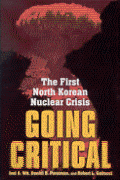
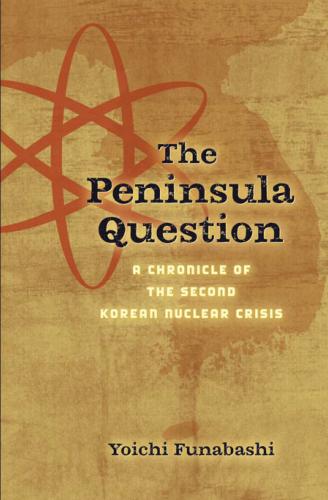
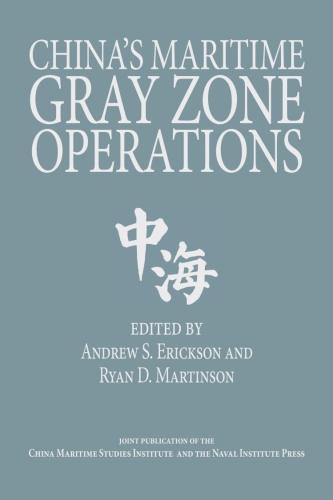
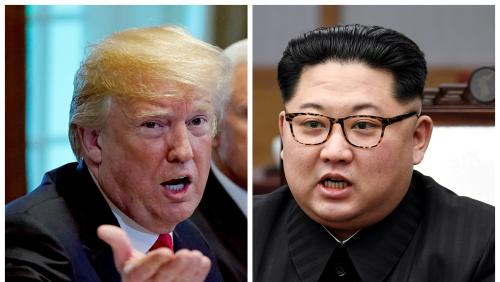
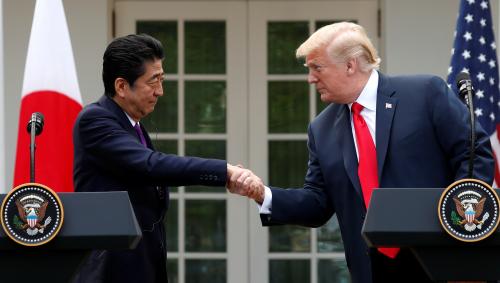
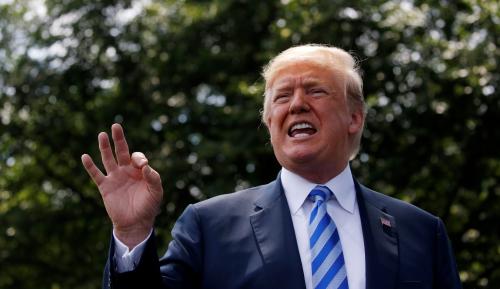
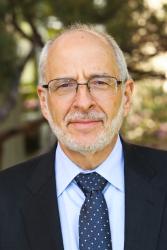
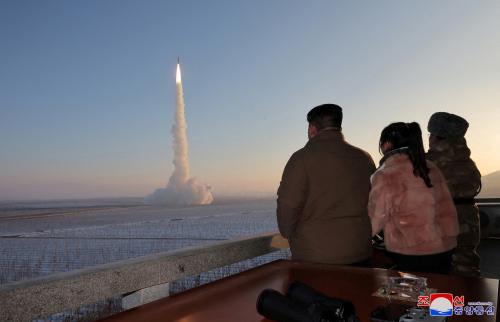
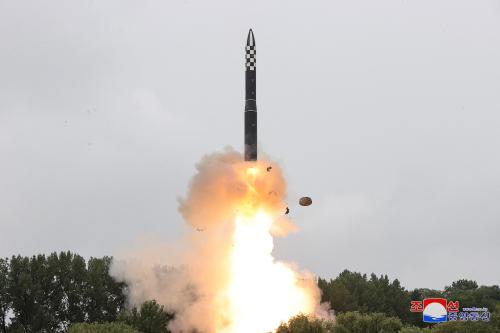
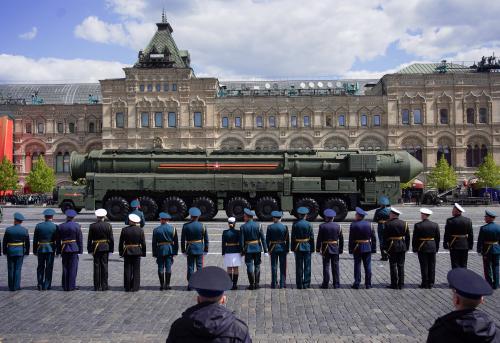
Commentary
Trump is hoping for a win in Singapore—but will his hubris and inexperience show?
June 11, 2018